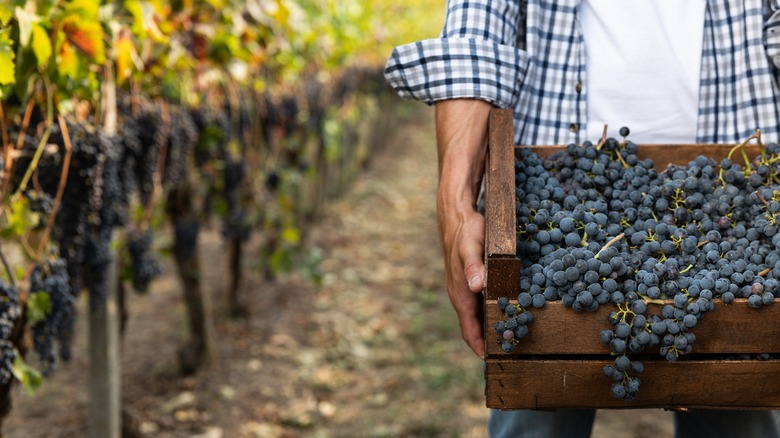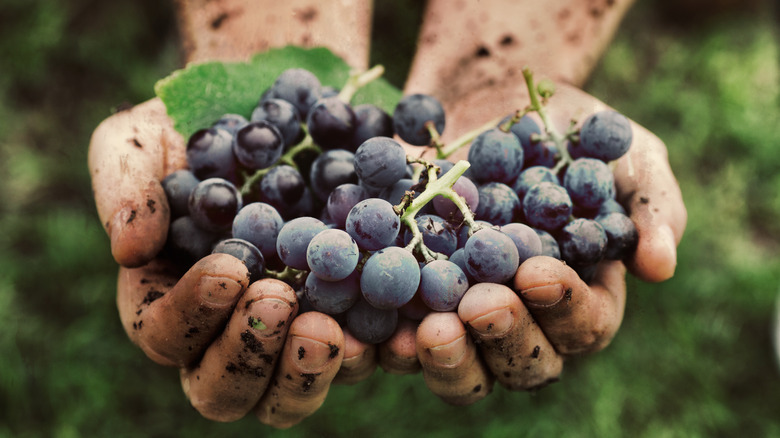What's The Difference Between Organic And Biodynamic Wine?
The land of mystifying markers has permeated the world of wine. Labels we typically associate (and are perplexed by) with food — natural, organic, and low-sugar may come to mind — have made their way onto our favorite vessels of vino.
When it comes to wine, the options have long since surpassed simply red and white. We now have our health and the Earth to take into consideration as well. Two increasingly popular classifications of adult grape juice are organic and biodynamic. But what gives? What's the main difference between the two labeled libations?
A bottle of biodynamic wine is, more often than not, also organic. Yet, a bottle of wine labeled organic is not necessarily biodynamic. In simple terms, biodynamic wine is organic wine coupled with a respect for the entire ecosystem of the vineyard and the cadence of nature. But to understand the main difference, taking a look at the practices and regulations that go into making the two is helpful.
What is organic wine?
Per government regulations, any wine bearing the official USDA organic seal is made from certified organically grown grapes and free of synthetic additives, pesticides, or added sulfites (though naturally occurring sulfites may be present). Anything used to make the wine, such as yeast, has to be from a certified organic source.
Any bottle without the seal labeled "made from organically grown grapes" must also be made from certified organic grapes, but there is a little more wiggle room with other ingredients. No pesticides or synthetic materials are permitted. However, a minimal amount of sulfites is allowed. This slightly less-stringent rule for organic labeling applies to wines from Europe and Canada as well.
While the definition of organic varies slightly across continents, the biodynamic wine label has one solid interpretation internationally. Though not government-regulated, there are strict criteria attached to the biodynamic label from the independent Demeter Association that has been in effect since 1928 in Europe.
How does biodynamic wine differ?
Biodynamic wine mainly differs from organic in that the practice takes nature into account. According to Barbara Gross, co-owner of Cooper Mountain Vineyards, the first certified biodynamic vineyard in the Pacific Northwest and one of the first top-10-certified vineyards internationally, biodynamic farming is organic and then some. Gross explains, "Organic and biodynamic farming are both approaches to agriculture that prioritize soil health and biodiversity. While both organic and biodynamic farming focus on eliminating synthetic chemicals, biodynamic farming goes one step further and incorporates practices to create a self-sustaining ecosystem on the farm."
So the difference seems to lie in the bigger picture and the long game. While organic wine may skew more toward the consumer's preferences for health, biodynamic wine is looking out for the planet as a whole. Gross continues, "One example of this is the application of biodynamic spray preparations made from natural substances that proactively enhance the health and vitality of the crops and environment as a whole system."Biodynamic farmers also often follow the lunar, solar, and even astrological cycles and place a strong emphasis on the soil the grapes are grown in — often adding herbs, minerals, and manure to enhance the vitality.
Bottom line: Both organic and biodynamic wines are excellent options when imbibing, but biodynamic varieties may offer a bit more bang for the buck in terms of the Earth and environment.


